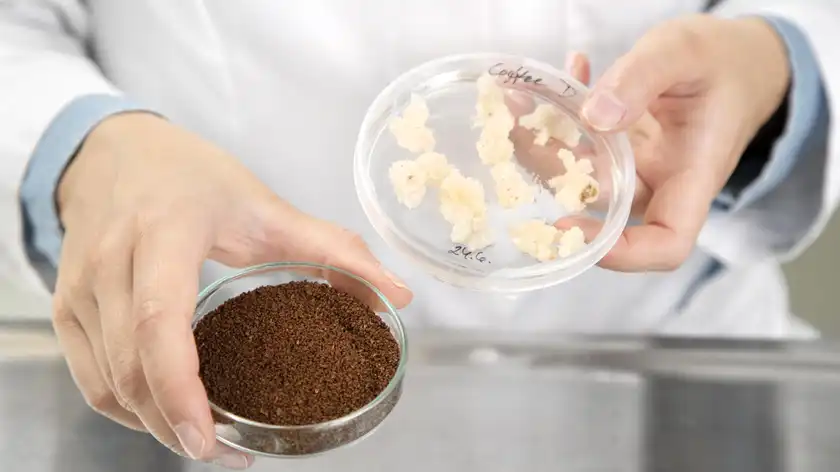In a groundbreaking scientific endeavor, researchers from Finland have disclosed the intricate process of producing lab-grown coffee, marking a significant stride in sustainable coffee production. The innovative method, initially successful in 2021, has now been meticulously documented by the VTT Technical Research Centre of Finland and shared with the public.
Published in the prestigious Journal of Agriculture and Food Chemistry, the research paper elucidates the step-by-step procedure employed by the scientists. Beginning with the original coffee plant, the team established cell cultures to modify aroma during roasting, analyze caffeine content, conduct flavor assessments, and subject the product to sensory profiling by a panel of tasters.
As global demand for coffee continues to surge, conventional coffee bean production grapples with sustainability challenges related to land and water use, labor rights, and climate change. In 2021, Europe, the world’s leading consumer of coffee, imported over 3.6 million tonnes of green coffee, averaging an estimated 5 kg per person annually.
Cellular agriculture emerges as a promising solution to the sustainability woes of coffee production, offering potential benefits such as regional self-sufficiency in climates unsuitable for traditional coffee farming. Additionally, lab-grown coffee boasts the ability to expedite production significantly. While traditionally farmed coffee yields 1-2 harvests per year, lab-grown coffee can be cultivated in just a month due to the controlled process and the renewable nature of coffee plant cells, eliminating the need to grow new plants from seeds.
Despite these advancements, the journey from the laboratory to consumer spaces remains incomplete. Dr. Heiko Rischer, Principal Scientist and Head of Plant Biotechnology at VTT, emphasizes the necessity of a dedicated ecosystem for the commercialization of lab-grown coffee.
“Growing coffee cells in a bioreactor is one thing; making it a commercially viable product is another. Factors such as the raw material’s origin, cultivars, soil, elevation, climate, and even the year of cultivation, along with the roasting, fermentation, and brewing processes, all influence the final product,” explains Dr. Rischer.
While lab-grown coffee offers controlled production, variations in approaches, particularly in roasting, significantly impact the aroma profile—a crucial factor for consumers. Dr. Rischer envisions collaboration among stakeholders in the coffee value chain to establish processes for producing and commercializing this new sustainable coffee.
“Our hope is that the publication of this scientific article, showcasing proof of concept for lab-grown coffee, propels the establishment of an ecosystem or a collective with the resources, expertise, and determination to pioneer an entirely new coffee experience. It’s a monumental challenge, but one VTT is ready to undertake with the right partners and experts,” asserts Dr. Rischer.


